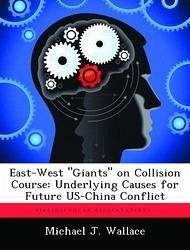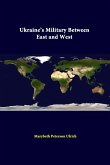The concept of a non-liberal China continuing to grow anywhere near its current rates economically and militarily is viewed with a mixture of reactions: from fear to acceptance, to skepticism and cynicism, and an outright desire to stop it from happening. With about 21% of the world's population, China has the potential to exert a tremendous influence in the international scene as the state of flux recedes and the next world order emerges. The Pacific Rim continues to grow in importance to the United States, as delineated in the most recent National Security Strategy. Understanding the political, cultural, and warfare philosophy of China will aid immeasurably to charting the future course to take in the relations assuming China continues to rise in power. A suitable framework, furnished by relevant theories fashioned in light of the dynamic and complex world, is necessary to facilitate the navigation through the underlying sources of conflict. Two modern-day theorists, Doyle and Huntington, have significantly contributed to differing aspects that are worth considering in regard to potential conflict between the US and China over miscommunications and misperceptions. Doyle looks at the inherent tensions between powerful liberal and non-liberal states. Many missed opportunities to pursue mutual advancement of strategic interests and a general reduction in tensions through accommodation is evident.








